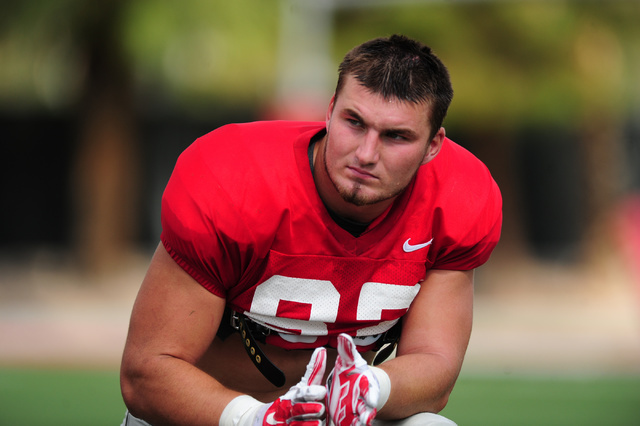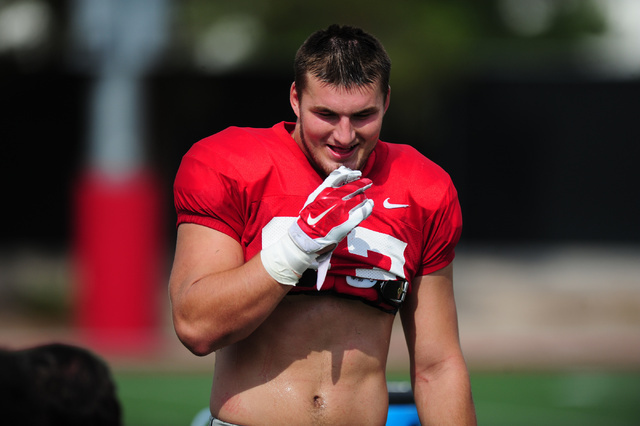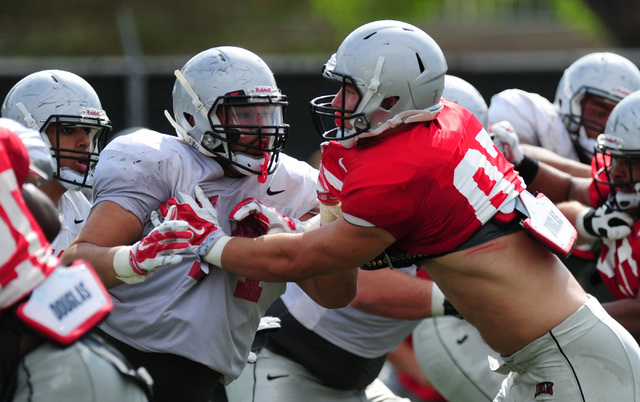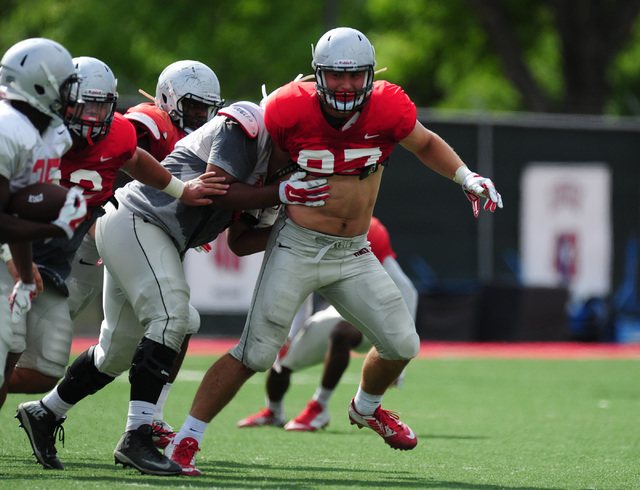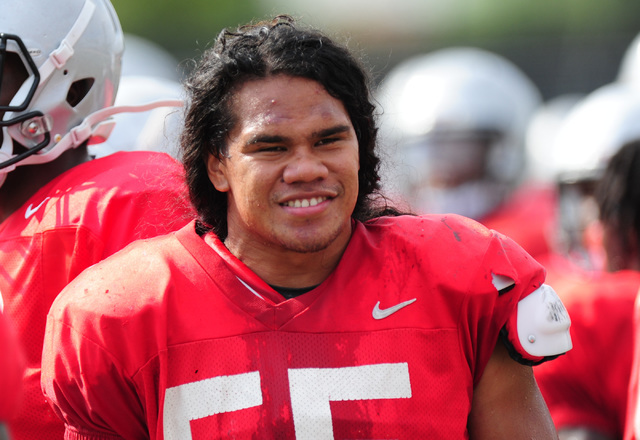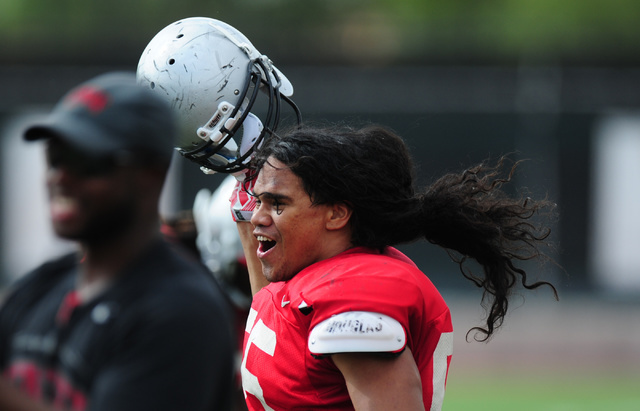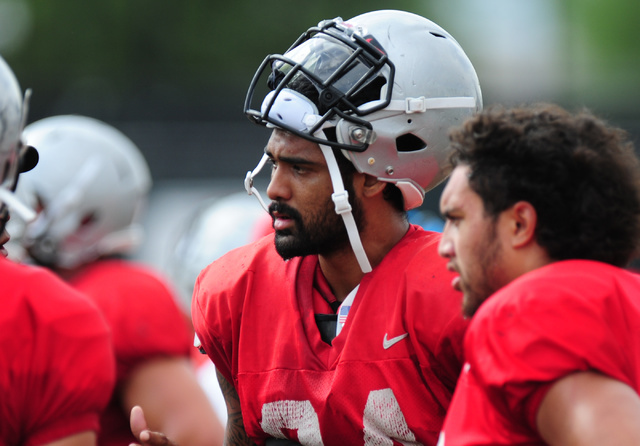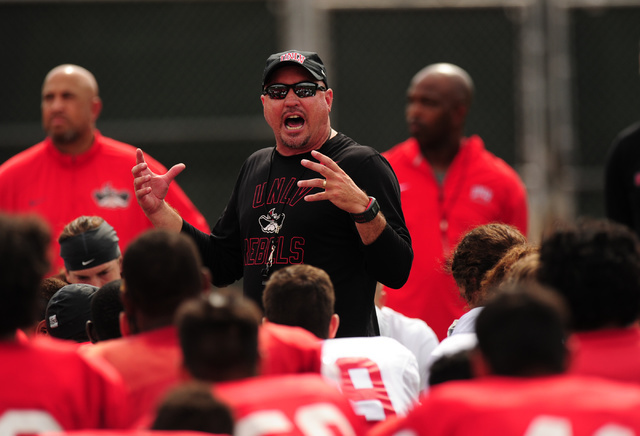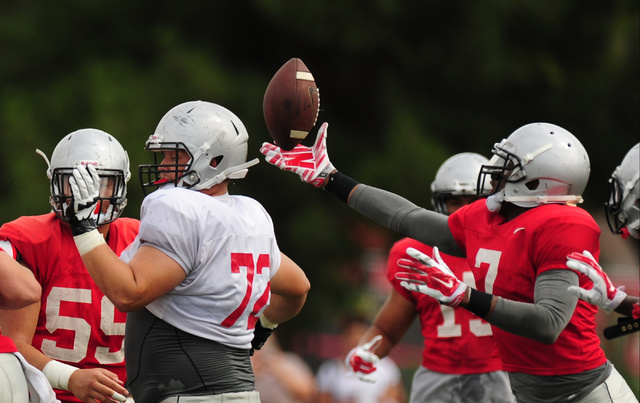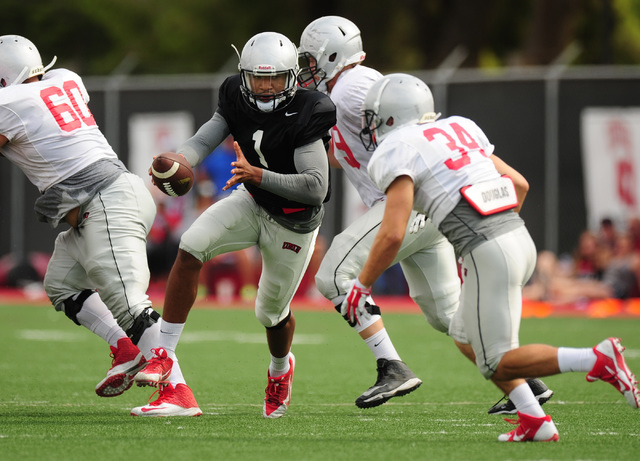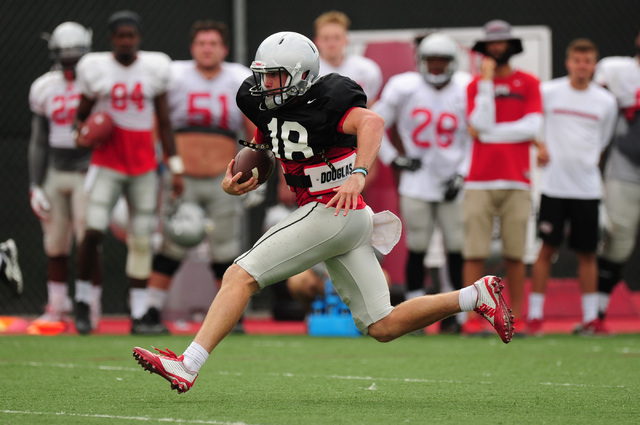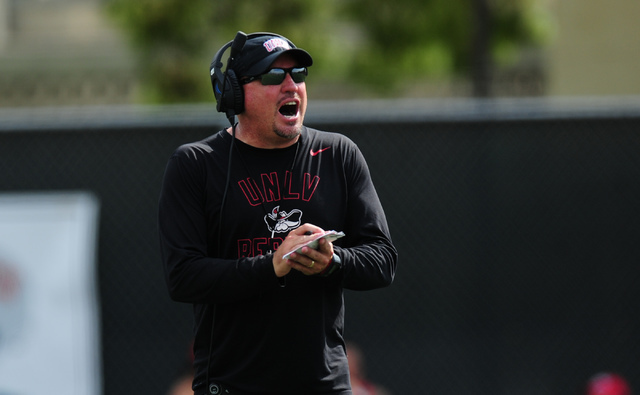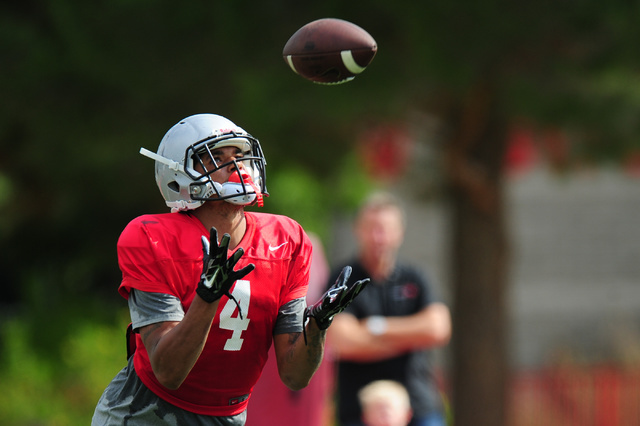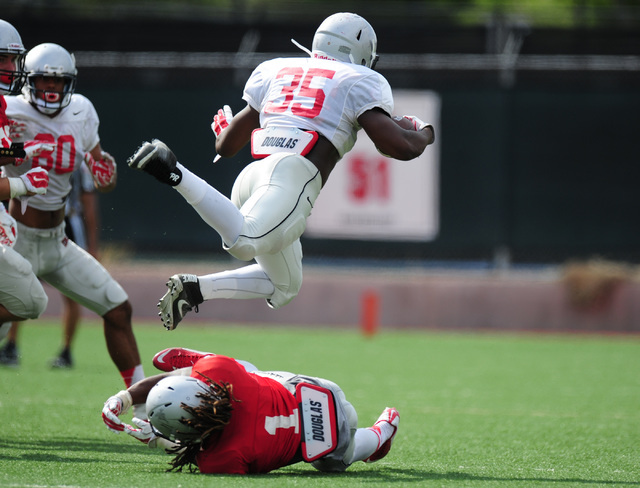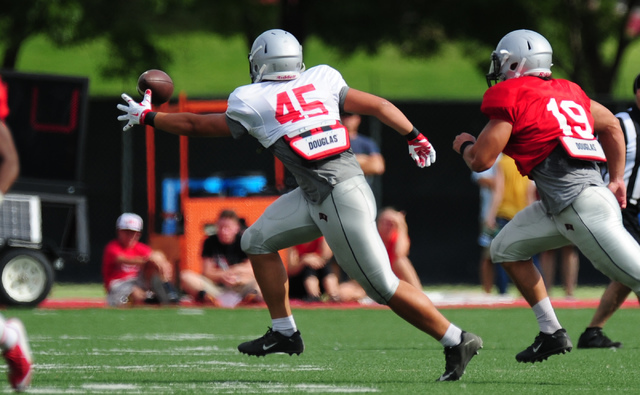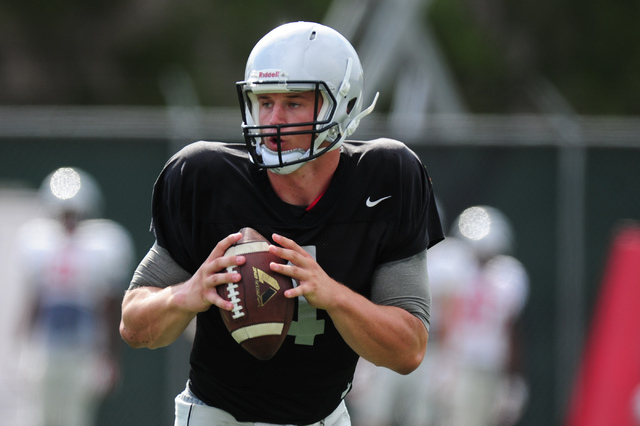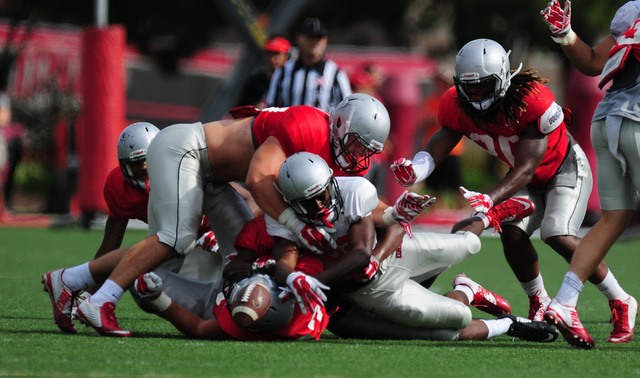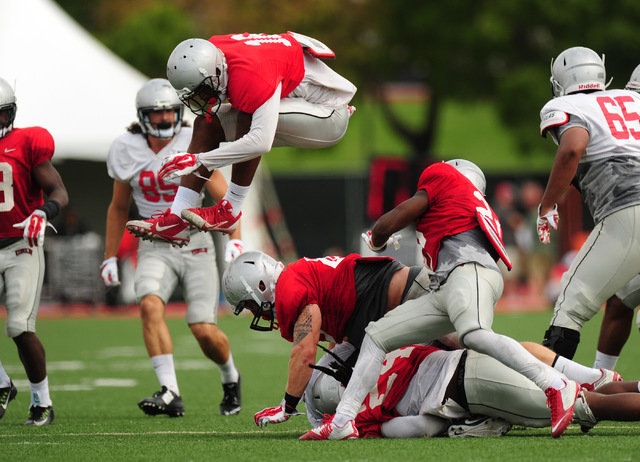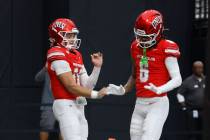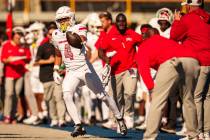Football becomes a lifeline for UNLV defensive end Antonio Zepeda
UNLV defensive end Antonio Zepeda has overcome some disturbing obstacles in his life and long odds to become an NCAA Division I college football player.
He was only 3 months old when his father was sentenced to life in prison for first-degree murder. When he was 8 and virtually homeless, sleeping on park benches most nights, Child Protective Services took Zepeda away from his mother, a drug addict whom he said once tried to drown him.
A TOUGH CHILDHOOD
“I never had a relationship with (my parents),” said Zepeda, 21. “Basically, I’ve been on my own since I was 8 years old.”
Zepeda spent the rest of his childhood in Phoenix bouncing around group homes comprised of up to 10 children who had been abused or neglected. It was there that a staff member named Jake Boston introduced Zepeda to football, and the sport has been his salvation.
“That’s always been my outlet,” Zepeda said. “Growing up, I was angry. When I first started playing football, that was so much of a stress reliever.”
The 6-foot-6-inch, 265-pound Zepeda went on to play football, baseball and basketball at Camelback High School, where he had 10 sacks his senior year en route to earning first-team all-state honors and a scholarship to UNLV from former coach Bobby Hauck, who recruited him to play tight end.
NO SUPPORT
“Growing up, I was always told, ‘You’re never going to make it. You’re going to be dead at 16. You’ll be in prison. Your anger’s going to get the best of you.’ I kind of always held on to that to prove people wrong,” Zepeda said. “The percentage of people coming out of a group home to go to college is already slim to none, and to play college football, pretty much no one does that. I always take pride in what I’ve been through.”
While Zepeda, a junior, credits sports for keeping him out of trouble, he veered off track his junior year of high school, when he was arrested for burglary. Zepeda, 17 at the time, said he was with a childhood friend who broke into a house.
“I was hanging around with the wrong people,” Zepeda said. “I made some bad decisions growing up, but I’ve always persevered.”
THE HELP HE NEEDED
He served two weeks in a juvenile detention center for his crime, performed community service and was kicked out of his group home. With nowhere to go, Zepeda turned to Camelback coach Brandon McNutt, who, along with his wife and two young sons, welcomed the wayward youth into his home.
“If he didn’t take me in, I don’t know where I’d be at,” Zepeda said. “He kind of got my head on right. He helped me become more of a man, with my morals, my ethics and my character.”
McNutt also gave Zepeda his first glimpse of a loving family life.
“I felt like for the first time ever I was part of a family,” he said. “I loved it. I never knew what that felt like growing up.”
HIS FATHER AND MOTHER … GONE
Toward the end of Zepeda’s senior year, he received word that his biological mother was on her deathbed and wanted to see him. After all he had endured, he initially said no, but Boston, who has remained a mentor, told him he would regret it if he didn’t see her.
“He was right, so I went. I saw her and grabbed her hand and told her I forgave her,” he said. “Even though the stuff she put me through was detrimental to my life, it also paved the way for me.
“She passed away the next day, right before prom. I’ve kind of just been pushing through since.”
Zepeda, who knows the exact date of his mother’s death — May 3, 2013 — learned the next year that the father he never met had died in prison.
He now considers his Rebels teammates his family.
“They know the stuff I’ve been through. If I get down or feel like I’m failing, they’re there to pick me up,” he said. “I feel like they’re family, especially the (defensive) line. They’re the best family I could ever ask for.”
The feeling is mutual.
“Life’s all about trust,” UNLV coach Tony Sanchez said. “I don’t care if it’s football or in our families or whatever type of business you’re involved in, you want to trust the people around you.
“I think we’ve developed a level of trust with Antonio and his teammates, and he feels like this is his family and he knows that we genuinely care about him.”
IN FOOTBALL, DEFENSE IS HIS HOME
Zepeda, who in addition to defensive end and tight end also played quarterback, running back, punter and kicker in high school, has bounced between offense and defense at UNLV and is still trying to make his mark on the field.
“Defense is where my heart is at,” he said. “What’s better than getting to hit people and you don’t get in trouble for it?”
Zepeda has stayed in touch with the man who introduced him to football and said Boston will be at the Sept. 1 season opener against Jackson State at Sam Boyd Stadium.
“I look at him like a role model because he didn’t have the best upbringing, either,” Zepeda said. “He always told me, ‘Whatever you want to do with your life, you can do it. It doesn’t matter that you’re in a group home.’
“I always hold on to that because not many people believed in me. The ones who have meant the world to me.”
Zepeda, who aspires to become an advocate for troubled teens and role model for children in group homes, has faith that everything he went through happened for a reason.
“It’s all one day going to make sense. I’m destined to do something good with my life,” he said. “I’m very strong with my faith in God, and I always believe He gives his toughest battles to his toughest soldiers.”
Contact reporter Todd Dewey at tdewey@reviewjournal.com or 702-383-0354. Follow him on Twitter: @tdewey33
The Zepeda file
Class: Junior
Major: Public administration
Position: Defensive end
Height/weight: 6-6, 265
High school: Camelback (Phoenix)
Career highlights:
Has played tight end and defensive end at UNLV
Made first career start at defensive end in 2015 vs. San Diego State
Played in all 13 games in 2014
Earned first-team all-state prep honors in Arizona at defensive end
As Phoenix prep star, played tight end, defensive end, quarterback, running back, punter and kicker



